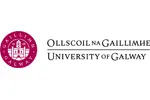We're moving! This site will be relocating to goingto.university in 2026. Please update your bookmarks to the new address.


Ireland
University of Galway| The award | How you will study | Study duration | Course start | Domestic course fees | International course fees |
|---|---|---|---|---|---|
| MSc | Full-time | 1 year | September | - | - |
This master's programme will provide students with an in-depth understanding of the technology used in modern astronomical observatories through taught courses and a research project. It will prepare students to effectively carry out PhDs in either the development of new astronomical instrumentation or in the use of data and images from these facilities. A combination of core modules on astronomical instrumentation, as well as transferable skills and specific engineering modules in technologies such as computing, electronics and control will also enhance the employability of graduates of this Structured MSc.
Click for more information on the MSc Astronomical Instrumentation.
Applications are made online via the University of Galway Postgraduate Applications System. Candidates are required to provide full CV and personal statement and the names of two academic references.
Staff members of The Centre for Astronomy and the Applied Optics group, both under the School of Physics.
Contact University of Galway to find course entry requirements.
Below are some suggested courses at other providers that you may also be interested in:
Brain and Cognition Master Degree
Erasmus School of Social and Behavioural Sciences (ESSB), Erasmus University Rotterdam
Find out moreCertificate IV in Information Technology (Systems Administration Support) Certificate IV
TAFE South Australia
Find out moreIf you do not meet the entry requirements for this course then consider one of these postgraduate preparation courses from another institution:
Graduate Diploma of Engineering (Electrical Systems)
Engineering Institute of Technology
Find out moreGraduate Diploma in Strategic Management Level 7
New Zealand Management Academies (NZMA)
Find out moreGraduate Diploma of Professional Psychology Practice
Australian College of Applied Psychology (ACAP)
Find out moreThere are 164 other courses listed from University of Galway. A selection of these are displayed below:
Bachelor and Master of Engineering (Electrical and Electronic) Bachelor
University of Galway
Find out moreBachelor and Master of Engineering (Electronic and Computer) Bachelor
University of Galway
Find out moreJoin the StudyLink email list and never miss a chance to turn your study abroad dreams into reality!
